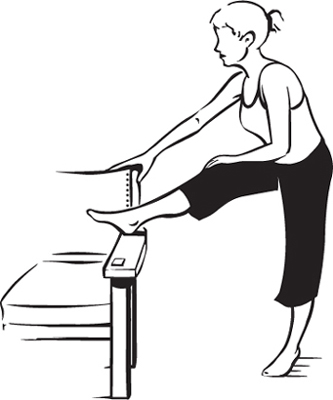10. Do You Need Extra Iron?
Nearly all diets that supply enough
calories for you to gain weight during pregnancy have enough minerals to
prevent mineral deficiency. However, few women have iron stores to meet
pregnancy demands. The recommended dose is 27mg a day.
A Look at Prenatal Vitamins
Prenatal vitamins contain many needed
substances for you and baby. That’s why you should take them every day
until baby is born. A typical prenatal vitamin contains the following:
• calcium to build baby’s teeth and bones, and to help strengthen your own
• copper to help prevent anemia and to help in bone formation
• folic acid to reduce the risk of neural-tube defects and to help in blood-cell production
• iodine to help control metabolism
• iron to prevent anemia and to help baby’s blood development
• vitamin A for general health and body metabolism
• vitamin B1 for general health and body metabolism
• vitamin B2 for general health and body metabolism
• vitamin B3 for general health and body metabolism
• vitamin B6 for general health and body metabolism
• vitamin B12 to promote blood formation
• vitamin C to aid in your body’s absorption of iron
• vitamin D to strengthen baby’s bones and teeth, and to help your body use phosphorus and calcium
• vitamin E for general health and body metabolism
• zinc to help balance fluids in your body, and to aid nerve and muscle function
During pregnancy, your iron needs
increase. Iron intake is most important in the second half of pregnancy.
Most women don’t need iron supplements during the first trimester. If
you take iron then, it can worsen symptoms of nausea and vomiting. In
addition, iron can irritate your stomach and may cause constipation.
11. Other Supplementation
Zinc may help you if you are thin or
underweight. We believe zinc helps a thin woman increase her chances of
giving birth to a bigger, healthier baby. Recent reports have tied the
use of zinc to reducing the length and severity of a cold. You may even
have used some of these cold remedies in the past. However, we recommend
you talk to your healthcare provider before using any zinc product for a
cold. We don’t have information on how using zinc to help fight a cold could affect a pregnant woman. Better to be safe than sorry.
The value of fluoride and
fluoride supplementation in a pregnant woman is unclear. Some
researchers believe fluoride supplementation during pregnancy results in
improved teeth in the child, but not everyone agrees. Fluoride
supplementation in a pregnant woman has not been proved harmful to her
baby. Some prenatal vitamins contain fluoride.
12. Overactive Bladder and Incontinence Medications
Do you take medicine to treat an
overactive bladder? If you do, you need to talk to your healthcare
provider before pregnancy or as soon as you find out you’re pregnant. He
or she can advise you about continued use of your medicine during
pregnancy.
The problem of overactive bladder occurs
when the brain tells nerves in the bladder there’s a need to urinate,
even if the bladder isn’t full. Symptoms include going to the bathroom
more than 12 times a day, getting up two or more times at night and a
sudden, immediate need to go. You may also leak urine.
Some Information May Scare You
In an effort to give you as much
information as possible about pregnancy. The
information is not included to frighten you; it’s there to provide facts
about particular medical situations that may occur during pregnancy.
If a woman experiences a serious problem,
she and her partner will probably want to know as much about it as
possible. If a woman has a friend or knows someone who has problems
during pregnancy, reading about it might relieve her fears. We also hope
our discussions can help you start a dialogue with your doctor, if you
have questions.
Nearly all pregnancies are uneventful,
and serious situations don’t arise. However, please know we have tried
to cover as many aspects of pregnancy as we possibly can so you’ll have
all the information at hand that you might need and want. Knowledge is
power, so having various facts available can help you feel more in
control of your own pregnancy. We hope reading information helps you
relax and have a great pregnancy experience.
If you find serious discussions frighten
you, don’t read them! Or if the information doesn’t apply to your
pregnancy, just skip over it. But realize information is there if you
want to know more about a particular situation.
Medicines to
treat the problem work by relaxing muscles. Some commonly prescribed
medications include Ditropan, Detrol LA, Sanctura and Enablex.
13. Exercise for Week 7
Stand with your right side next to the
sofa or a sturdy chair. Holding onto the sofa or chair with your right
hand, lift your right foot and place it on the arm of the piece of
furniture. Bend forward until you feel a stretch in your leg. Hold for
10 seconds. Repeat for your left leg. Stretches hamstrings, and strengthens thigh muscles.
